![]()
The BOOST Cafe Resource Center is a collection of FREE resources curated by BOOST and sorted by grade level and category.
Interested in adding a FREE resource? Email [email protected]
KEYWORD SEARCH
GRADE LEVELS
RESOURCE CATEGORIES
Engaging Families in Out-of-School Time Programs Toolkit

![]()
![]()
![]()
![]()
![]() Community-Based, Family Engagement
Community-Based, Family Engagement
This Engaging Families in Out-of-School Time Programs Toolkit includes tools to strengthen after school and youth programs by increasing family involvement. Through the 4-year Engaging Families Initiative, BOSTnet worked with after school programs to develop tools and strategies to help you improve how you involve families in your program and in the success of their children.
College and Career Readiness Toolkit: A Guide for Out-of-School Time Program Providers
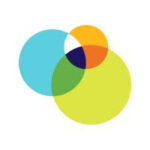
![]()
![]() College Prep, Curriculum & Enrichment
College Prep, Curriculum & Enrichment
MOST’s College and Career Readiness Toolkit is a comprehensive guide to help middle and high school out-of-school-time programs get laser focused on building 21st century skills and supporting young people as they navigate through the complex world of planning for their advanced education and careers. Check back for free and low cost professional development resources including videos, online courses and opportunities for live virtual training.
Curriculum Fundamental Training
After School Administration, California Standards, Child Advocacy, Project-Based Learning, Youth Development
IDEAS Empowered by Youth® PBL Curricula is a pioneering approach to youth education, ideally tailored for today’s rapidly evolving, technologically-driven, and globally connected world. The Curriculum Fundamental Training prepares educators to present PBL curricula for students. By preparing educators to instill a culture of self-directed learning, it emphasizes crucial skills that today’s youth require: effective communication, collaborative learning, creativity, critical thinking, and emotional intelligence.
Climate Change Project-Based Learning (PBL) Curriculum

Advocacy/Policy, Climate Change, Community Collaborations/Partnerships, Community-Based, Environmental Education, Project-Based Learning, STEM Curriculum
Climate change is an important learning and advocacy initiative for today’s youth. This free PBL curriculum resource is an engaging and interactive curriculum tailored for grades K-12, focusing on climate change education. In this engaging and influential program, youth will: Learn about global climate and environmental problems, including the plastic trash crisis, pollution and its effects, the shortage of fresh water, and other health threats. Discover how these problems affect their communities. Explore how their personal choices affect the environment. Create a proposal to solve a problem related to climate change or the environment in their community. Present the proposal to experts. Present the final version of their proposal to their peers at a culminating event
Social and Emotional Learning Activities and Lesson Plans
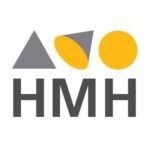
Curriculum & Enrichment, Emotional Intelligence, Social-Emotional Learning (SEL)
Free SEL curriculum and lesson plans from Houghton Mifflin Harcourt – The following SEL lesson plans for students in elementary school through high school include writing prompts, downloadable posters, worksheets, reading lists, and more. With these activities and social and emotional lessons, you can help students build the skills needed for success in and out of the classroom.
ACA Training Sheets for Summer Camp Counselors
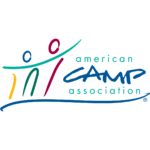
Camps, Summer Programs
Facilitation can be challenging to teach, but when your counselors “get it,” the results are phenomenal. Check out these training tools, with exercises in facilitation, staff schedules, expectations, and examples, and consider if they have a place in your staff training.
Free Summer Youth Program Activity Downloads
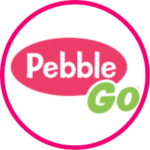
Curriculum & Enrichment, Summer Programs
A large assortment of free downloadable summer activities for youth programs, including animals, science, social studies, health, biographies, and more.
Best Practices in Engaging Diverse Families

![]()
![]()
![]() Community Collaborations/Partnerships, Diversity, Equality, Cultural Competency, Family Engagement, Research
Community Collaborations/Partnerships, Diversity, Equality, Cultural Competency, Family Engagement, Research
In the following report, Hanover Research examines literature and case studies on engaging diverse families in public, K12 settings. It focuses in particular on the experiences and needs of large, urban public school districts, and on the experiences and needs of African-American and Hispanic families.
National Foster Care Month Resource Toolkit
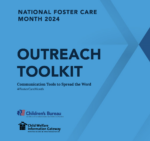
Foster Youth, Prevention & Intervention
National Foster Care Month (NFCM) is an initiative of the Children’s Bureau that seeks to increase national awareness of foster care issues. Each May, we take time to recognize the important role that people from all parts of child welfare play in supporting children, youth, and families. This year, join us as we raise awareness about this year’s theme: “Engaging Youth. Building Supports. Strengthening Opportunities.”
Y4Y Summer Learning Planning Tools
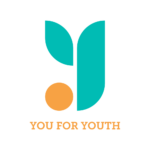
Curriculum & Enrichment, Summer Programs
Summer Learning Initiative Tools and Webinars from You for Youth – Here you’ll find all the tools you need for developing your Summer Learning Program. Please be sure to visit the corresponding step along the path! CREATING A PROGRAM TEAM CONDUCTING YOUR NEEDS ASSESSMENT WRITING SMART GOALS DETERMINING LOGISTICS INTENTIONAL ACTIVITY DESIGN INTENTIONAL STUDENT RECRUITMENT CONTINUOUS IMPROVEMENT ADDITIONAL TOOLS